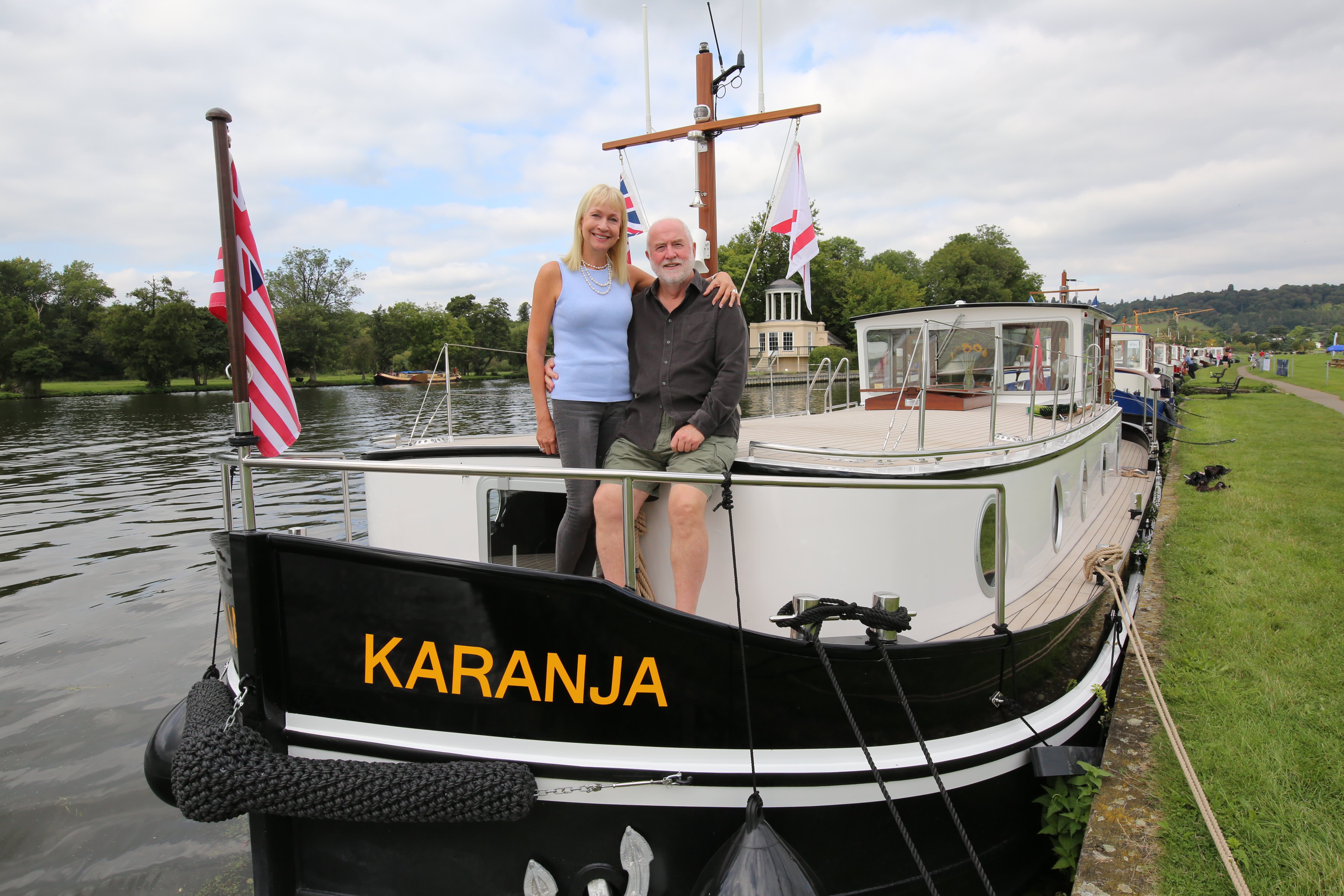Products You May Like
“Where do you live?” is a simple question — but I don’t have a quick answer. Instead of settling down and waiting to get old in one place, my husband and I devised an ongoing travel plan that each year includes France, Singapore, South Africa, Australia and New Zealand — as well as the odd side-trip or cruise along the way.
It all started with a boat. After 15 years in Singapore, we decided to retire — my husband from a career in shipping, and I from my job as a magazine editor — and build a barge to explore France every summer via that country’s huge network of waterways. We launched the Karanja, our 49-foot replica Dutch barge built by Piper Boats in England, on the Thames. A year later, we sailed her across the Channel to Calais, down rivers and canals to the south of France — an unforgettably wonderful experience.
Canal du Midi canal in Toulouse, France.
pase4 | iStock | Getty Images
Every October, we winterize our boat and leave her in a safe port — for the moment, that’s Moissac on the Canal de Garonne. Then we fly south — like migrating geese — to spend yet another summer between Durban and Perth. We simply don’t do winter.
The nomadic retirement
Now meet South Africans Gail and Neil Greenfield, the epitome of retired nomads. After eight years as expats in the U.K., the U.S., Germany and Singapore, this occupational therapist and accountant couple retired in their late 40s to start living their dream.
Every year, they spend about three months each in Asia, Africa, Europe and the Americas. They have a camper van in Europe for the summer and keep a pick-up truck and an off-road caravan in South Africa, too.
“We like to return to favorite spots like Phuket, Italy and South Africa every year, and we try to add a couple of new destinations too,” said Gail. “This year we visited Colombia, Brazil, Panama and Saint Lucia for the first time.”
Rather than slowing down, nomadic retirees quit work to travel the world.
Sam Diephuis | Tetra images | Getty Images
Choosing eclectic travel themes — like wine routes, music festivals, bird-watching, Grand Slam tennis tournaments and even barbecue restaurants across America — adds sometimes quirky twists to their travel adventures.
When it comes to the planning, big events like this year’s Rugby World Cup in Japan are anchored in first, Gail explained. The monthly plan is finalized about a year in advance, with key flights and reservations booked. Other details fall into place closer to the time.
“For example, we’ll rent a car for a road trip across the U.S. about three months ahead, but we won’t set a daily itinerary,” she said. “We like some flexibility.”
The rules to retiring early
So you’re probably wondering: As relatively ordinary salaried people, how were they able to retire so young and afford this lifestyle of extensive travel?
“If you want to retire early,” Neil joked, “don’t have kids and don’t get divorced!” More seriously, he added, hard work and a good expat package make saving and investing easier in the last 10 years of your career when income earning potential is at its highest.
To retire early, don’t fall into the trap of living above your means.
Sam Edwards | OJO Images | Getty Images
“Expats can fall into the trap of living above their means,” said Gail. “We never skimped on lifestyle or travel, but we didn’t waste money on unnecessary luxury.”
Also, they don’t believe in owning multiple properties. “It’s always cheaper to rent,” she said.
Like us, Gail and Neil’s best experiences involve the people they meet and the time they spend with family and friends. “No amount of five-star luxury ever beats sitting around a barbecue in your mates’ backyard,” said Neil.
Living life as a nomad
There are umpteen variations on the nomadic lifestyle. Many Brits spend the summer in Europe on boats like ours; some have sold their houses and live year-round on their floating homes.
At the other end of the scale are the seriously well-heeled world cruisers. Right now, the luxurious Viking Sun Ultimate World Cruise — said to be the longest cruise ever — is visiting 53 countries over an astounding 245 days.
The author, Verne Maree and her husband Roy, on the boat Karanja at Henley-on-Thames.
Courtesy of Verne Maree
Affordability aside, that may not appeal to everyone. Likewise, nomadic retirement is not everyone’s cup of Earl Grey — and it is certainly not for the kind of retiree who is deeply involved in family obligations, such as caring for elders or baby-sitting grandchildren.
The downsides to a life of constant travel
Global medical insurance can be an expensive minefield, and tax residency may be an issue. “Keeping track of all the admin can be difficult,” said Gail. Internet banking and her phone’s document scanner have helped.
“Don’t skimp on accessibility and data, even if it means getting local SIM cards wherever you go,” she said.
Her top advice? Travel light, with a good phone and a small laptop. Hold accounts with multiple banks and a selection of credit cards. Split them with a partner, if possible.

